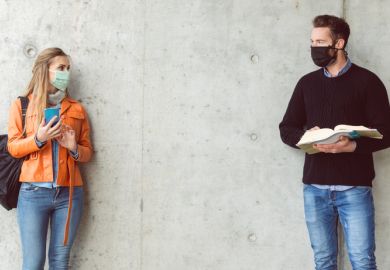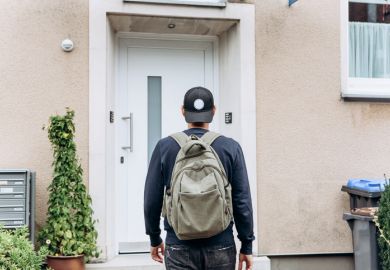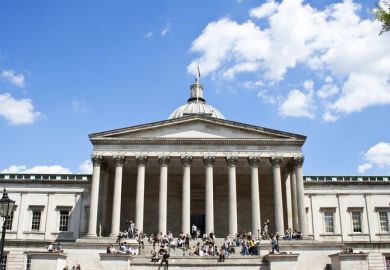Manchester’s two biggest universities are moving their teaching online for the rest of October after recording more than 1,600 coronavirus cases between them.
The University of Manchester has recorded 1,061 positive cases since 21 September, including 20 staff cases.
Manchester Metropolitan University reported 544 cases between 14 September and 27 September, including 13 members of staff. The institution said it would publish an update of its numbers later this week.
In a joint statement, the two universities said they had met with public health authorities and Manchester City Council after the significant increase in the number of Covid cases in the city.
“As a result, we have agreed to increase the level of online learning for most programmes, with effect from tomorrow, Wednesday 7 October. This change will be in place until 30 October 2020,” the statement said.
“Our campuses remain open, and we will continue to ensure the necessary safety precautions are in place to make any activity on campus as safe as possible. We will continue to support our staff and students.”
Face-to-face teaching will proceed only for accredited and professional programmes, and for on-campus laboratory, clinical and practice-based teaching.
David Regan, director for public health for Manchester, said: “This is the right thing to do and supports our approach using data and a local approach to contain outbreaks so that we reduce the possibility of further infection. More online teaching will protect staff, students and the wider community, which is what we want and need.”
A statement from Manchester City Council said there had been 2,740 new cases of Covid-19 in the seven days to Thursday 1 October, with the increase being driven primarily by a rise in numbers among the 17- to 21-year-old age group. Manchester’s cases are now above 500 per 100,000 people.
Speaking to the BBC, Sir Richard Leese, leader of the council, said a targeted approach to students was needed because in one hall of residence that was sampled, more than 200 students tested positive but 90 per cent were asymptomatic. “We think there needs to be a far more targeted approach, rather than a blanket approach,” he said.
The University of Sheffield, which has recorded 589 cases, said that it was moving all teaching online, apart from clinical tuition, from 9 to 19 October.
A spokeswoman said: “In response to the increase in Covid-19 cases in the city and within our university community, the number of our students self-isolating and the likelihood of more stringent local measures being implemented shortly, we have taken the precautionary measure to temporarily suspend face-to-face teaching (with the exception of clinical teaching) between Friday 9 October and Sunday 18 October, with face-to-face teaching resuming from Monday 19 October.
“The safety of our students and staff is our utmost priority and we will continue to regularly review our safety measures and teaching arrangements to ensure they are in line with evolving guidance, including using this transition period to put in place additional risk mitigation measures that will allow for the resumption of face-to-face teaching.”
The developments came as University and College Union members at Northumbria University voted to ballot for industrial action over Covid health and safety concerns and called for the vice-chancellor, Andrew Wathey, to resign.
The UCU called the meeting after the university “refused to address staff concerns about in-person teaching, even though 770 students have tested positive for Covid since returning to campus for the start of term”.
At the same time, Universities UK published a checklist for universities to ensure that they were properly supporting students who have to self-isolate. This includes staying in regular, proactive contact with students who are isolating, ensuring that they have access to food and personal hygiene products, and providing necessary technology for online learning.
Michelle Donelan, the universities minister, told the House of Commons Education Committee that she believed “the sector has prioritised [student] well-being” during the crisis, but added that if there were examples of institutions that were not doing enough to support students she “wanted to hear about it”.
Register to continue
Why register?
- Registration is free and only takes a moment
- Once registered, you can read 3 articles a month
- Sign up for our newsletter
Subscribe
Or subscribe for unlimited access to:
- Unlimited access to news, views, insights & reviews
- Digital editions
- Digital access to THE’s university and college rankings analysis
Already registered or a current subscriber? Login










